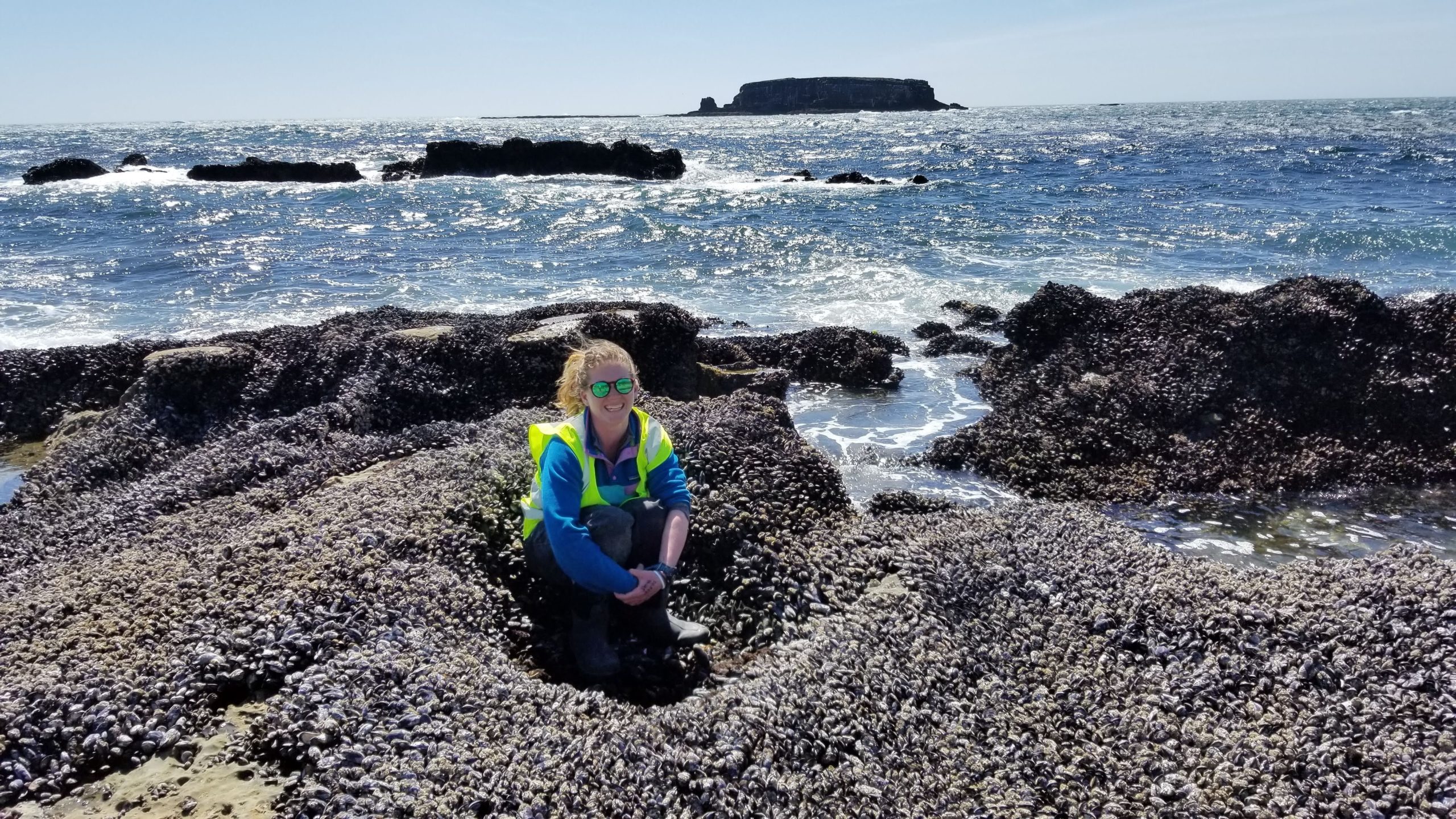The loss of species changes living communities, but some species losses have bigger impacts than others — such as “foundation species”, which contribute resources or regulate population growth in other species. A new study by Jennifer Fields, who completed her Master’s in marine biology with CSUN Associate Professor Nyssa Silbiger, tracks the impact of on tidepool communities that lose two such foundation species, the surfgrass Phyllospadix and the mussel Mytilus californicus.
The study, published this month as a Feature Article in the journal Marine Ecology Progress Series, reports the results of experiments Fields conducted in tidepool communities on the Oregon coast. She measured physical and chemical conditions in the tidepools and surveyed the community of species living in each pool, then removed either the surfgrass or mussels, and repeated the measurements and community surveys. Removing both foundation species changed the physical and chemical characteristics of the pools, increasing the light in the water column and raising their temperatures — and these changes were accompanied by changes in the community of species living in the pools, mostly increasing the cover of microalgae and reducing the diversity of sessile species in the pools.
The full study is available Open Access on the journal website.
Header image: Jennifer Fields sits in the midst of a mussel bed at one of her field sites (Nyssa Silbiger)

